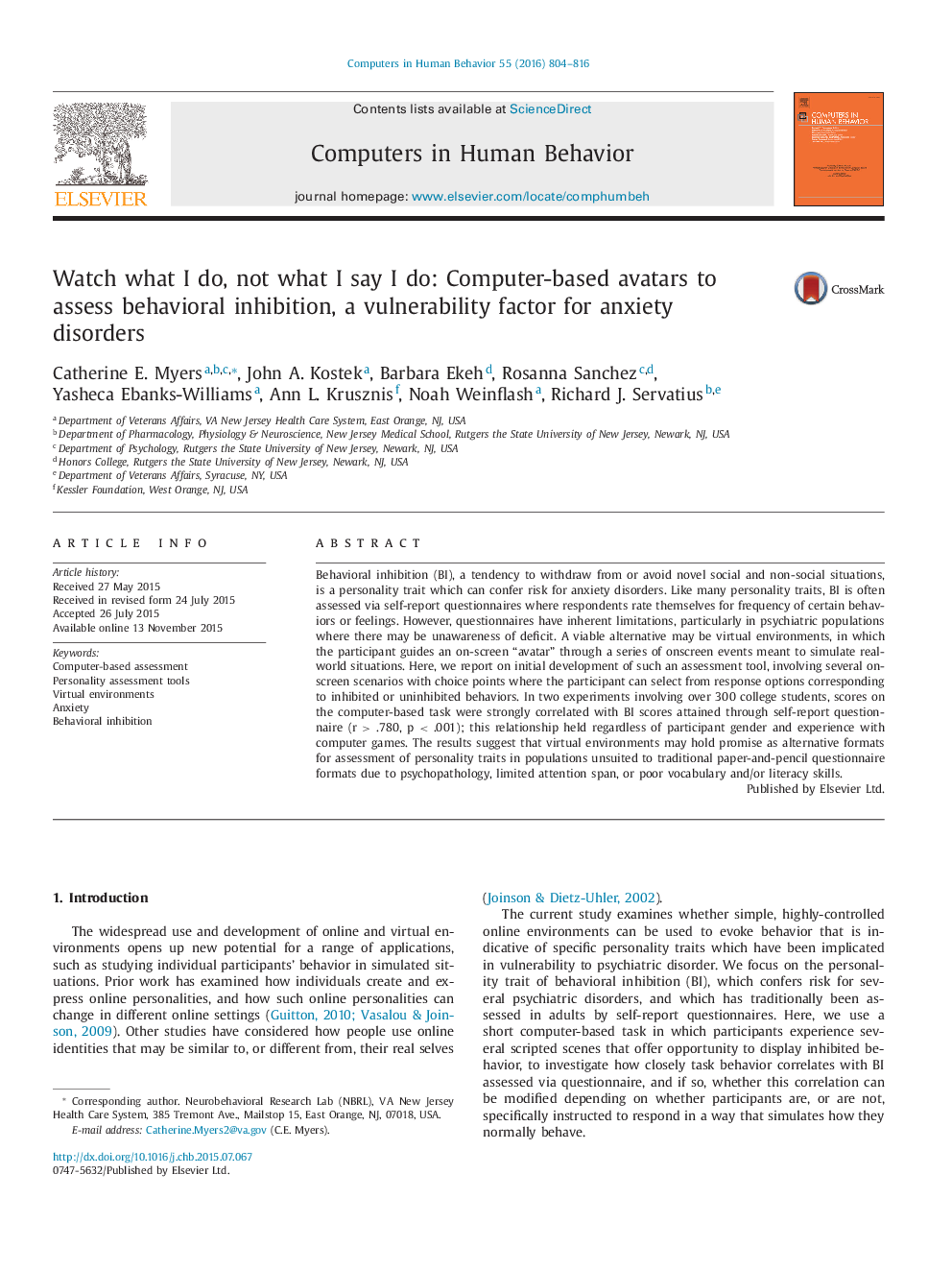ترجمه فارسی عنوان مقاله
به آنچه که انجام می دهم نگاه کنید نه به آنچه که می گویم: آواتار های مبتنی بر کامپیوتر برای ارزیابی بازداری رفتاری، یک عامل آسیب پذیری برای اختلالات اضطرابی
عنوان انگلیسی
Watch what I do, not what I say I do: Computer-based avatars to assess behavioral inhibition, a vulnerability factor for anxiety disorders
| کد مقاله | سال انتشار | تعداد صفحات مقاله انگلیسی |
|---|---|---|
| 50946 | 2016 | 13 صفحه PDF |
منبع

Publisher : Elsevier - Science Direct (الزویر - ساینس دایرکت)
Journal : Computers in Human Behavior, Volume 55, Part B, February 2016, Pages 804–816
ترجمه کلمات کلیدی
ارزیابی بر اساس کامپیوتر ؛ ابزار ارزیابی شخصیت؛ محیط های مجازی؛ اضطراب؛ بازداری رفتاری
کلمات کلیدی انگلیسی
Computer-based assessment; Personality assessment tools; Virtual environments; Anxiety; Behavioral inhibition

